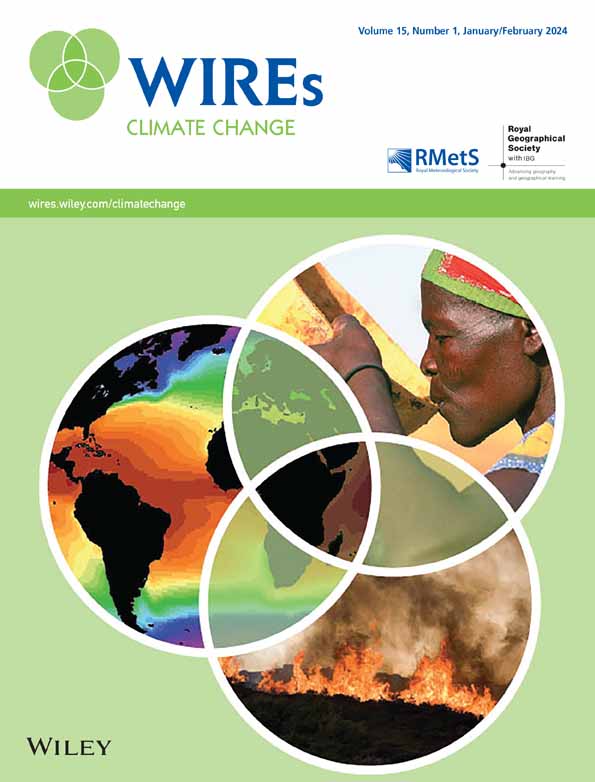Climate ethics and population policy: A review of recent philosophical work
IF 10.3
1区 环境科学与生态学
Q1 ENVIRONMENTAL STUDIES
引用次数: 4
Abstract
It is well‐established that human population growth is a leading cause of increased greenhouse gas emissions and accelerating global climate change. After decades of neglect, philosophical ethicists have, over the past decade, taken up the issue of climate change and population policy and there are now numerous articles and books which explore the subject. Both rights‐based and consequentialist approaches seek to balance reproductive rights against other human rights and interests threatened by overpopulation and ecological degradation. While biocentric ethicists have additional reasons to advocate for smaller human populations, even anthropocentrists affirm the need to balance reproductive rights against reproductive responsibilities in order to promote the well‐being of future generations. There is a particularly strong consensus on the value of choice‐enhancing population policies that reduce fertility voluntarily, such as securing universal access to modern contraception and promoting equal rights and opportunities for women. There is strong support for government policies that incentivize smaller families, some support for policies that disincentivize larger ones, and little to no support for punitive policies. Many ethicists warn that failure to enact reasonable population policies now may necessitate harsher policies in the future, a common theme in climate ethics generally.气候伦理与人口政策:近期哲学研究综述
众所周知,人口增长是温室气体排放增加和全球气候变化加速的主要原因。在被忽视了几十年之后,哲学伦理学家们在过去的十年里开始关注气候变化和人口政策的问题,现在有许多文章和书籍探讨了这个问题。以权利为基础的方法和结果主义的方法都寻求平衡生殖权利与其他人权和利益,这些人权和利益受到人口过剩和生态退化的威胁。虽然以生物为中心的伦理学家有更多的理由提倡减少人口,但即使是人类中心主义者也肯定需要平衡生育权利和生育责任,以促进子孙后代的福祉。在选择的价值上有一个特别强烈的共识——加强人口政策的价值,自愿降低生育率,例如确保普遍获得现代避孕措施,促进妇女的平等权利和机会。人们强烈支持鼓励小家庭的政府政策,一些人支持不利于大家庭的政策,很少或根本不支持惩罚性政策。许多伦理学家警告说,如果现在不能制定合理的人口政策,未来可能会有更严厉的政策,这是气候伦理学的一个普遍主题。
本文章由计算机程序翻译,如有差异,请以英文原文为准。
求助全文
约1分钟内获得全文
求助全文
来源期刊

Wiley Interdisciplinary Reviews: Climate Change
METEOROLOGY & ATMOSPHERIC SCIENCES-
CiteScore
20.00
自引率
2.20%
发文量
58
审稿时长
>12 weeks
期刊介绍:
WIREs Climate Change serves as a distinctive platform for delving into current and emerging knowledge across various disciplines contributing to the understanding of climate change. This includes environmental history, humanities, physical and life sciences, social sciences, engineering, and economics. Developed in association with the Royal Meteorological Society and the Royal Geographical Society (with IBG) in the UK, this publication acts as an encyclopedic reference for climate change scholarship and research, offering a forum to explore diverse perspectives on how climate change is comprehended, analyzed, and contested globally.
 求助内容:
求助内容: 应助结果提醒方式:
应助结果提醒方式:


